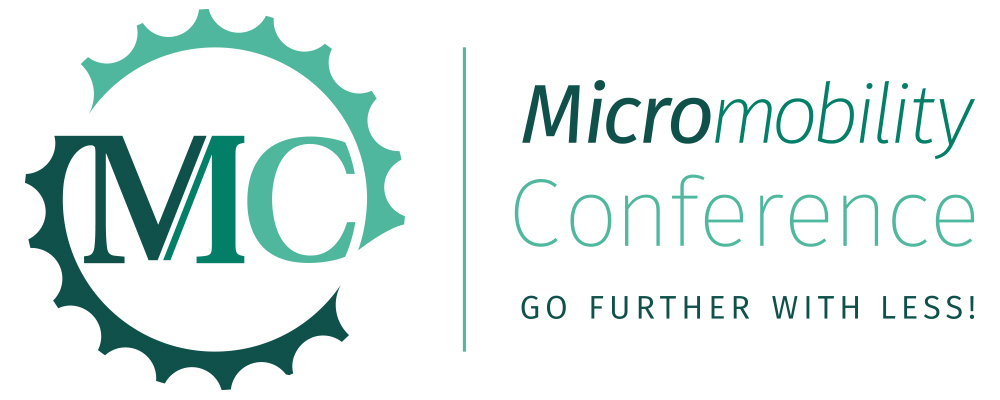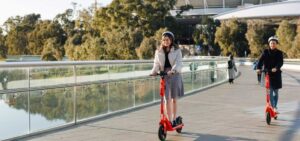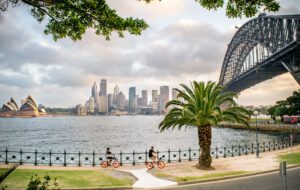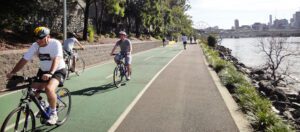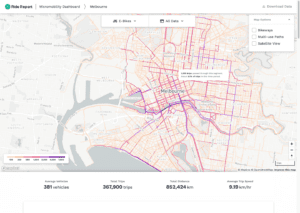Abstracts Preview
Rental e-scooters are boosting local economies in turbulent times
Cities around the world are searching for greener transport solutions that can integrate well with existing public transit networks. Four years on from the introduction of e-scooters onto Australian streets, rental micromobility operators like Neuron Mobility have become embedded in local ecosystems. Beyond offering a safe, sustainable and convenient alternative to short car trips, Neuron e-scooters have also been found to inject a much needed boost into local economies.
Read MoreWhy are major corporations and property owners embracing active travel?
When Thomas Treloar founded his business, The Rolling Fix, in 2011 there was only a handful of full-service end-of-trip facilities, and these were reserved for premium buildings.
Today an EOTF with fresh towels, hairdryers and drying rooms has become the minimum for any new building.
Thomas believes it takes more than physical infrastructure to be a leader in the bicycle space, and he will discuss how many companies and buildings are implementing ride-to-work programs, community workshops and support for buying bikes.
Thomas will also share his predictions on the future of this sector and the opportunities available to ‘make it pay’.
Read MoreThe currency of change – a strategy to overcome community resistance (and build your industry)
In contested cities, community resistance to change has the potential to derail active travel projects – leading to fewer customers for Australia’s nascent micromobility industry.
Mark Ames will draw on his extensive experience working with cities around the world to highlight why resistance to urban change happens, how it can be managed, and why all of us have a role to play.
He’ll highlight what major employers and landowners are doing in Macquarie Park to support active travel – and why – and share a story of how a local active transport connection was derailed.
Finally, he’ll propose a strategy for the micromobility industry to help enable change – and grow the size of your industry in the process.
Read MoreIntroducing the Active Transport branch of TfNSW
The head of Transport for NSW’s Active Transport branch, Gordon Hughes, provides insight to the branch, its objectives and key projects.
Active Transport embeds and enables the effective delivery of programs and initiatives that encourage people to choose sustainable modes of transport.
This includes projects and initiatives to encourage more people to walk or ride a bike in and around our neighbourhoods, precincts and recreational activity hubs, including people with all levels of ability.
Read MoreDecision Support Tools for Micromobility – Informing ‘Where’ and ‘What’ to Build
Lee Roberts, a Research Associate at City Futures Research Centre at UNSW, presents two decision-support tools under development at UNSW and aimed at assisting with the rollout of micromobility infrastructure.
One tool uses a wide range of data sources to help officials identify ‘where to build’, while the second provides an interactive experience of the streetscape to determine ‘what to build’.
Read MoreThe future of shared e-mobility
Ohmie GO is a prop-tech e-mobility startup providing a complete turnkey solution of electric cars, e-scooters and e-bikes for both residential and commercial buildings.
Its founder and CEO, Kyle Bolto, will share insight to the establishment, services and goals of Ohmie GO and the emergence of ‘mobility as a service’ in Australian cities.
Users can access Ohmie GO’s e-mobility solutions on demand and be assured they are using the best and latest technology. Kyle and his team have designed all their technology from scratch and in-house and have perfected this over a number of years. Ohmie GO was the pioneer in its sector and has partnered with some of the biggest developers in Australia to change the petrol car landscape and drive the future of e-mobility.
Read MoreIntroducing a Web-based Tool for Rapid Economic Appraisal of Active Transport Infrastructure Projects
Josh Adams, an economist at the Queensland Department of Transport and Main Roads, will introduce the Department’s recently updated Active Travel Economic Appraisal Tool and discuss his team’s plans to integrate more research and data on micromobility into rapid economic appraisal of active transport infrastructure projects.
Read MoreThe magic of transparency: how shared data can align interests and make regulation easier
When shared micromobility first launched, there was a lack of data standardisation or even sharing protocols. This caused confusion and friction in implementing regulations, while also making it hard to understand the impacts of programs.
The emergence of the Mobility Data Specification and the resulting ecosystem of tools and data analysis have given public agencies and operators common points of reference to discuss issues and opportunities around program policies. New capabilities allow more dynamic policy building that are responsive to outcomes on the ground.
Michael Schwartz leads the shared micromobility practice of US-based company Ride Report, a shared mobility management platform that automatically collects data to help government monitor and manage active transport in their areas.
He will discuss how shared micromobility is creating precedent for how transportation can be managed, measured and planned with transparent rules and data.
Read MoreA Perth family’s cargo bike journey: from interest to changemaker
Urban planning has an especially direct effect on pre-schoolers and other little people under 95cm. That fact underpins the global Urban95 program to create safe spaces for children to grow the flourish.
It is also a central consideration as WA transport planning consultant Matt Root evaluates his son’s experience as he sits in the front of their family cargo bike.
That first-hand reflection provides valuable insight to the experiences and barriers of families making, or at least considering, the shift to cargo bikes for transportation.
Read MoreWhat insights do Dutch case studies offer Australia for successful introduction of shared mobility concepts in spatial planning?
Transport planning needs to be revised to address urban densification, climate objectives and transport user needs.
With the world population forecast to reach 9.7 billion by 2050 and 70% of those people living in urban areas, governments face challenges to keep cities liveable and accessible, while meeting sustainability objectives.
Senior Consultant and Project Manager Mirza Hotic will take a fresh view of the Dutch experience, based on spatial planning, and how it can guide the effective expansion of micromobility in Australia.
Read More